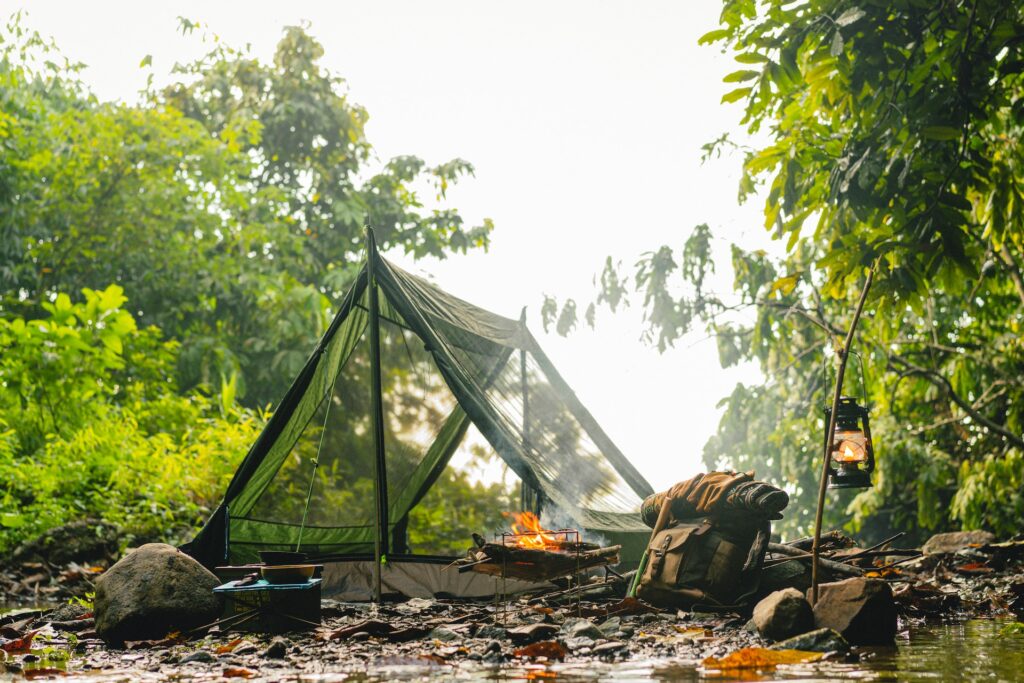
In order to keep your camping gear in good condition, it’s important to store it properly. Whether you use your equipment frequently or simply take it out of storage once in a while, proper storage will ensure that your tent, backpack, sleeping bag, and other camping items last longer and work better when you do finally get around to using them. Here are some dos and don’ts of storing camping gear that will help extend the life of your valuable investment no matter how often you take it out into the wilderness or keep it in storage.
1-Do label your gear
Labeling your gear can not only make it easier to identify what you need when packing for your next trip, but can also help reduce the chance that someone might steal something from you. You should label things like tents, packs, chairs, coolers or anything else that would be easily taken as well as things like food containers which often get mixed up in backpacks at the end of a long trip.
2-Do clean your gear before storage
It’s always a good idea to clean your gear before storage, even if you don’t think it needs it. Not only will this remove the dirt that can accumulate, but it will also help make your gear smell fresh again. Clean gear is also more sanitary, which is important if you use this equipment for cooking or eating outdoors. To wash your camping equipment, soak everything in warm water with a bit of soap for about 30 minutes, then scrub using an old toothbrush or something similar.
3-Do organize your stuff with containers
Storing camping gear is much easier if you use containers. You can get a wide variety of storage boxes made specifically for camping or outdoor activities. Then, you have the option to make them smaller or bigger as needed. With containers, your stuff is easy to find when you’re ready to go because everything will be neatly in its place! What’s more, they keep fire-starting equipment away from cooking materials and animal pests so your supplies stay safe when left behind.
4-Do use air tight container
For storing camping gear, use air tight containers that seal as much air out as possible. This will limit the amount of moisture present in the air which will reduce corrosion on metal items like cooking equipment, while keeping it safe from small animals and insects. Freezing your gear before you bring it back home is also a good idea, as this will kill any insects or animals hiding in it, making storage easy on both parties.
5-Don’t leave your stuff out in the sun
Exposing your camping gear to extreme sunlight for long periods can damage things like dry bags, tents, backpacks, clothes and more. Avoid exposing your equipment to the sun as much as possible. And if you do find yourself at a beach or lake with loads of sunlight shining on it, bring a large canopy or tarp along so that you can shield your equipment from being in direct contact with the sun’s rays.
6-Don’t pack up your clothes wet from hiking or swimming
Most campers don’t consider the importance of storing their clothes so they are dry when they need them next. It is crucial to remember this before you head out on your next camping trip, especially if it includes activities like hiking or swimming. Most people mistakenly pack up their clothes wet from hikes or swimming and put them back in their backpack without any thought about how uncomfortable this will make them for the rest of the day.
7-How long should you store hiking equipment?
Don’t store your camping gear too long in one place. Over time, campers can develop mold from trapped moisture from rain or sweat. For backpacking skills, don’t use mothballs because they’re harmful to children, pets, and the environment. Keep your gear well ventilated by storing it outside or hanging it up in an unused corner of the basement for a few months to get rid of any musty smell.
8-When should you replace old tents, backpacks etc.?
There are many factors that come into play when deciding if it’s time to say goodbye to your old camping gear. Is the sleeping bag too small? Does the tent feel too bulky or heavy? Does it have any torn seams or holes? Are there any buttons or zippers that don’t work anymore? Be sure to check all these factors before replacing a tent, sleeping bag, or backpacks – sometimes they can be sewn up.
Read more about how to upgrade your backpacking skills in Backpacking Tips .
